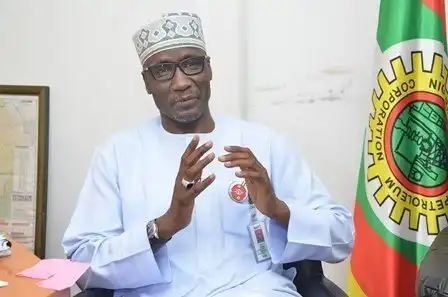Since early February when the federal government balked at the prospects of exiting the subsidy regime in an election year, fuel scarcity and long queues have returned, causing Nigerians much economic upheaval in terms of skyrocketing prices of goods and services, and an upward climb of official inflation figures; it has also eroded one of the government’s own important legacies. Until the return of this acute scarcity of virtually all petroleum products, from petrol and diesel to jet fuel, the Direct Sales Direct Purchase scheme of the government had kept the domestic supply of these products largely stable since it commenced in May 2017.
So, why have the queues returned? The Nigeria National Petroleum Company Limited (NNPC Ltd) has provided Nigerians with string of excuses to explain away the scarcity, none of them satisfactory, from adulterated supply to the Russia-Ukraine war. And last week, the NNPC said the ongoing scarcity was caused by the Eid-el-Fitr holidays which disrupted fuel distribution chain, as if there were no similar holidays last year or the years before.
- ASUU strike: Education is becoming a mere side hustle
- Electoral Act 2022: Eliminating political quackery to actualise democracy
But in an important sense, the return of fuel scarcity is no more than a testimony to the continuing complete failure of Nigeria’s national oil company as a business, which it now claims to be, or as a public entity, which it was for so long. It would be difficult to find any Nigerian organization that has failed Nigeria more than the NNPC. In fact, the NNPC is a failure even to itself. Even at the current drastically reduced production levels of about 1.3 million barrels per day (bpd), Nigeria is still the largest oil-producing country in Africa, and the 15th in the world. But the NNPC Ltd is not listed among the world’s largest national oil companies (NOCs) in total assets, whereas, Sonagol, the Angolan national oil company places ninth with total assets worth over $51 billion, according to ranking by Sovereign Wealth Fund Institute (SWFI).
BOL and Sonatrach, the Botswanan and Algerian national oil companies place 13th and 16th on that list respectively, even though Algeria produces much less crude than Nigeria and Botswana almost none. Petronas, the Malaysian national oil company is 3rd on the same ranking, with total assets worth over $144 billion, even though Malaysia produces just about half of Nigeria’s total output, even at current levels. Moreover, the NNPC receives about 400,000 bpd of crude from the federal government supposedly for domestic consumption, making it the sixth largest oil producer in Africa in its own right, after Nigeria, Libya, Angola, Algeria and Egypt. Yet, all four of NNPC’s refineries are currently moribund, and none of them has functioned beyond 50 per cent capacity in the past 10 years, or more.
All four of Nigeria’s refineries in Port Harcourt (two), Warri and Kaduna, with only a combined capacity to refine about 450,000bpd, have gulped N4.15trn in the name of maintenance since 2015, yet, not one of them currently refines even a litre of petrol or diesel, according earlier published investigations by this newspaper. A further N7.9trn has been spent on petrol subsidy during the same period, due to NNPC’s litany of failures, chief among them the moribund refineries. Meanwhile, Egypt, which produces 560,000 bpd, or just about one third of Nigeria’s total daily output on a good day, has nine functional refineries with a combined refining capacity of over 800,000 bpd.
In short, by every industry measure, the NNPC—and Nigeria—compares only woefully to its peers as national oil company, or as an oil-producing nation, even within the continent. While Petrobras, the Brazilian national oil company, leads the world in Shale-oil technology, and Petronas, its Malaysian counterpart, has operations in 26 countries, Nigeria’s NNPC, as a company or public entity, specializes in subterfuge and empty excuses such as that Sallah holidays cause fuel scarcity.
As a newspaper, we believe that NNPC’s problems boil down to just two: its inability to understand its historical leadership role in driving Nigeria’s economy, occasioned by the moral poverty of its own leadership over the past three decades or so, and its inability to think and innovate. Yes, we are aware of the serious challenges posed by the subsidy conundrum in Nigeria. And yes, we are also aware of the disruptive effects of oil theft, pipeline vandalism, and attacks on installations by criminals pretending to be environmental or regional political activists. But a far-sighted organization that understands its historical role in its country’s yearning for development could easily have averted all these by innovating to stay ahead as many of its peers have done, even in more politically volatile regions such as the Middle East.
Instead, the only innovations that have come out of NNPC in the past thirty years are manipulated domestic consumption figures and the so-called Direct Sales Direct Purchase scheme which gives away Nigeria’s crude to foreign and local companies in exchange for refined petroleum products that are still acutely scarce at home. But there is a respite. Now that the NNPC is a private company, if still wholly owned by the government through the Ministry of Finance, Budget and Planning, we call on the federal government to throw all its key positions, from GMD to graduate entry jobs open for competitive applications. Immediately. That would be a good place to start genuine reform.

 Join Daily Trust WhatsApp Community For Quick Access To News and Happenings Around You.
Join Daily Trust WhatsApp Community For Quick Access To News and Happenings Around You.


